Plenary Speakers
| Opening Session 0800-1000 Thursday, 12-Oct-23 |
Jordan Ermilio, Villanova University |
| Varun Loomba, Global Partnerships Director, GHE Impact Ventures |
|
| Mou Riiny, SunGate Solar Ltd, South Sudan | |
| Conference Dinner 1800 – 2030 Friday, 13-Oct-23 |
Dr. Krista Donaldson, Stanford University |
Panels
| IEEE Humanitarian Panel 1230–1400 Thursday, 12-Oct-23 |
Panelists: IEEE EPICS, IEEE HTB, IEEE Smart Village | Stephanie Gillespie, EPICS in IEEE Committee Chair |
| Kit August, IEEE Humanitarian Technology Board | ||
| Ed Rezek, IEEE Smart Village | ||
| Connectivity Panel 0800-1000 Friday, 13-Oct-23 |
Panelists: Mei Lin Fung, Chris Igiraneza | Mei Lin Fung, People-Centered Internet |
| Chris Clement Igiraneza, KIT-HUB | ||
| Young Humanitarian Professionals Panel 1030-1230 Friday, 13-Oct-23 |
Panelists: Kory Hansen, Wayne Lifshitz, Ben Savonen |
Kory Hansen, |
| Wayne Lifshitz, Chemonics Inc | ||
| Ben Savonen, Global Development Incubator |
Plenary Speakers
Opening Session
0800-1000 Thursday, 12-Oct-23
Speakers: Jordan Ermilio, Villanova University; Varun Loomba, GHE Impact Ventures; and Mou Riiny, SunGate Solar Ltd, South Sudan
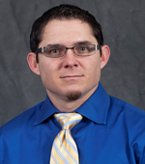 Jordan Ermilio is Director, Center for Humanitarian Engineering and International Development, College of Engineering, Villanova University. He has been directly involved with the engineering design and implementation of projects in countries throughout Southeast Asia, Africa, and Central America. He served as a US Peace Corps Volunteer in the Philippines where he was responsible for the implementation of water supply projects in Northern Luzon. He worked with Oxfam International during post-conflict reconstruction efforts in East Timor and has provided consulting services for the design of solar powered pumping systems in Sri Lanka. At the present time, he is working to integrate international development projects into the engineering curriculum at Villanova as the director of the Center for Humanitarian Engineering and International Development. This work includes the creation of engineering service-learning opportunities where undergraduate and graduate students provide technical support to global partners, advising and teaching students in the undergraduate minor in Humanitarian Engineering, advising graduate research projects, and directing efforts within the new center. He completed his Ph.D. at Loughborough University on the topic of Sustainable Management of Water Infrastructure and is the principal investigator of the Sustainable WASH research initiative at Villanova. His research focus includes understanding the dynamic nature of sustainability, exploring relationship between water management and the reliability of water infrastructure in developing communities where projects include partners in Madagascar, Ghana, Nicaragua, and Panama.
Jordan Ermilio is Director, Center for Humanitarian Engineering and International Development, College of Engineering, Villanova University. He has been directly involved with the engineering design and implementation of projects in countries throughout Southeast Asia, Africa, and Central America. He served as a US Peace Corps Volunteer in the Philippines where he was responsible for the implementation of water supply projects in Northern Luzon. He worked with Oxfam International during post-conflict reconstruction efforts in East Timor and has provided consulting services for the design of solar powered pumping systems in Sri Lanka. At the present time, he is working to integrate international development projects into the engineering curriculum at Villanova as the director of the Center for Humanitarian Engineering and International Development. This work includes the creation of engineering service-learning opportunities where undergraduate and graduate students provide technical support to global partners, advising and teaching students in the undergraduate minor in Humanitarian Engineering, advising graduate research projects, and directing efforts within the new center. He completed his Ph.D. at Loughborough University on the topic of Sustainable Management of Water Infrastructure and is the principal investigator of the Sustainable WASH research initiative at Villanova. His research focus includes understanding the dynamic nature of sustainability, exploring relationship between water management and the reliability of water infrastructure in developing communities where projects include partners in Madagascar, Ghana, Nicaragua, and Panama.
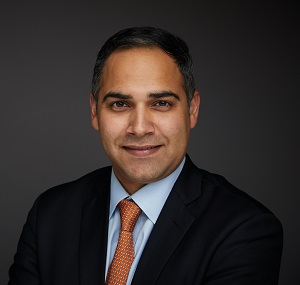 Varun Loomba is the Global Partnerships Director at Global Himalayan Expeditions (GHE), a 10-year-old social impact enterprise that provides clean energy access to remote Himalayan communities through the deployment of solar microgrids and creates livelihood opportunities through the establishment of carbon neutral homestays. As a founding member of GHE, Varun has played a pivotal role in establishing global partnerships with academia and corporations in the US and Europe.
Varun Loomba is the Global Partnerships Director at Global Himalayan Expeditions (GHE), a 10-year-old social impact enterprise that provides clean energy access to remote Himalayan communities through the deployment of solar microgrids and creates livelihood opportunities through the establishment of carbon neutral homestays. As a founding member of GHE, Varun has played a pivotal role in establishing global partnerships with academia and corporations in the US and Europe.
Over the past decade, GHE has electrified more than 210 remote off-grid villages in India and established over 60 carbon neutral homestays, positively impacting over 270,000 lives in the process. GHE has also recently been focusing on carbon projects, deploying clean cooking solutions in Northeast India, and upgrading healthcare centers with energy efficient medical equipment and solar power.
GHE has received recognition for their work in impact and sustainable tourism from prestigious organizations such as the UNFCCC at COP 26 and the World Economic Forum (WEF). They have also been awarded by UNWTO as a successful case study in sustainable tourism. GHE’s efforts have been prominently featured by BBC and National Geographic as a ‘Breakthrough Technology’ in today’s world.
 Mou Riiny left South Sudan as a young man during the civil war and was fortunate to study electrical engineering at the university of San Diego. In his studies, he remembers seeing a map of the world at night. Seeing the darkness over South Sudan inspired him to want to develop solutions for energy access in South Sudan. Following a senior project focused on designing solar energy systems in remote areas, he moved back to South Sudan in 2012 and in 2013 with funding support from the Institute of Electrical and Electronics Engineers (IEEE) and clean energy investors, Mou launched SunGate Solar. From these humble beginnings, Mou has now grown SunGate to have over 65 staff, 200+ projects and 2 mw+ of solar online in 13 states providing clean, reliable, affordable solar solutions to thousands of people across South Sudan. SunGate Solar’s core business is designing and installing off-grid solar power systems, but last year opened the very first solar powered Utility scale project in South Sudan and is now working to scale the model to other towns.
Mou Riiny left South Sudan as a young man during the civil war and was fortunate to study electrical engineering at the university of San Diego. In his studies, he remembers seeing a map of the world at night. Seeing the darkness over South Sudan inspired him to want to develop solutions for energy access in South Sudan. Following a senior project focused on designing solar energy systems in remote areas, he moved back to South Sudan in 2012 and in 2013 with funding support from the Institute of Electrical and Electronics Engineers (IEEE) and clean energy investors, Mou launched SunGate Solar. From these humble beginnings, Mou has now grown SunGate to have over 65 staff, 200+ projects and 2 mw+ of solar online in 13 states providing clean, reliable, affordable solar solutions to thousands of people across South Sudan. SunGate Solar’s core business is designing and installing off-grid solar power systems, but last year opened the very first solar powered Utility scale project in South Sudan and is now working to scale the model to other towns.
Conference Dinner
1800 – 2030 Friday, 13-Oct-23
 Dr. Krista Donaldson is an engineer, designer, author, and entrepreneur who has been recognized as a World Economic Forum Technology Pioneer, TED speaker, and a GLG Social Impact Fellow. She was also named one of Fast Company’s “50 Designers Shaping the Future.”
Dr. Krista Donaldson is an engineer, designer, author, and entrepreneur who has been recognized as a World Economic Forum Technology Pioneer, TED speaker, and a GLG Social Impact Fellow. She was also named one of Fast Company’s “50 Designers Shaping the Future.”
Krista is the Director of Innovation to Impact at Stanford University’s Byers Center for Biodesign, where her work focuses on ensuring design tools and processes are broadly applicable across global markets. She is also part of the team establishing the East Africa Biodesign Program at the University of Global Health Equity in Rwanda. In addition to her work at Stanford she works with organizations to promote financing of local medtech innovation in emerging markets.
Prior to joining the Byers Center, Krista was the founder and CEO of Equalize Health (spun out from D-Rev, short for Design Revolution) where she addressed global health inequities through the design and scaling of disruptive medical devices that treated over 2M patients – mostly children and young people – in 80 countries. Equalize Health filled a critical gap in healthcare by bridging innovation with global distribution to ensure that solutions sustainably reached the people who needed them. Peter Singer of the Effective Altruism movement called Equalize Health “one of the world’s best charities” because of its cost effectiveness and exemplary end-to-end processes.
Krista also served as an Economic Officer at the U.S. Department of State where she managed part of Iraq’s reconstruction portfolio, co-founded the startup Safehub (acquired by Bitium, USA), designed water pumps at KickStart International (Kenya) and worked on a range of projects at the design firm IDEO (USA).
Krista holds a BS in Mechanical Engineering, magna cum laude, from Vanderbilt University, master’s degrees in Product Design and Mechanical Engineering from Stanford University, and a Ph.D. in Mechanical Engineering, also from Stanford. She has published widely in design, global health, mechanical engineering, and engineering education, and is on the boards of the Bay Area Global Health Alliance and Design for Good. Originally from Nova Scotia, Canada, she now lives with her family in San Francisco, USA.
Linkedin: www.linkedin.com/in/kristadonaldson/
Panels
IEEE Humanitarian Panel
1230–1400 Thursday, 12-Oct-23
Panelists: Stephanie Gillespie, EPICS in IEEE; Kit August, IEEE Humanitarian Technology Board; Ed Rezek, IEEE Smart Village
Stephanie Gillespie, EPICS in IEEE Committee Chair, and Associate Dean, Tagliatela College of Engineering, University of New Haven in West Haven, CT, USA
EPICS in IEEE is a committee within the IEEE Educational Activities Board that believes that service-learning can positively impact our students and our communities. We believe in empowering engineers and technical professionals to impact communities, both local and global. In this workshop, the audience will receive a brief introduction to service learning pedagogy, our committee’s funding priorities, and the proposal process to receive funds from our committee. We will include a summary of best practices for project proposals as well, to increase the likelihood of selection for funding from our committee. See www.epics.ieee.org.
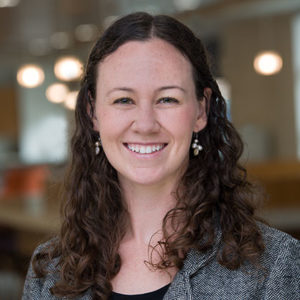 Dr. Stephanie Gillespie is the 2023 EPICS in IEEE Committee Chair, and Associate Dean at the Tagliatela College of Engineering at the University of New Haven in West Haven, CT. In this role, she leads initiatives related to accreditation, admissions, course management and scheduling, facilities, student concerns, and also coordinates the Introduction to Engineering course. Since entering academia, she has been passionate about preparing the next generation of engineers with real-life skills, specifically by teaching courses in the area of engineering service learning, first-year engineering courses, and the Grand Challenges of Engineering. Her current research interests span multiple areas of engineering education including maker-spaces, multidisciplinary teams, gender diversity and minority retention, and entrepreneurial mindset. Her PhD from Georgia Tech focused on machine learning and signal processing for affective computing, specifically detecting stress and depression in adults with communication disorders. She is actively involved in the Society of Women Engineers, EPICS in IEEE, and ASEE.
Dr. Stephanie Gillespie is the 2023 EPICS in IEEE Committee Chair, and Associate Dean at the Tagliatela College of Engineering at the University of New Haven in West Haven, CT. In this role, she leads initiatives related to accreditation, admissions, course management and scheduling, facilities, student concerns, and also coordinates the Introduction to Engineering course. Since entering academia, she has been passionate about preparing the next generation of engineers with real-life skills, specifically by teaching courses in the area of engineering service learning, first-year engineering courses, and the Grand Challenges of Engineering. Her current research interests span multiple areas of engineering education including maker-spaces, multidisciplinary teams, gender diversity and minority retention, and entrepreneurial mindset. Her PhD from Georgia Tech focused on machine learning and signal processing for affective computing, specifically detecting stress and depression in adults with communication disorders. She is actively involved in the Society of Women Engineers, EPICS in IEEE, and ASEE.
Kit August, IEEE Humanitarian Technology Board, Stevens Institute of Technology, Hoboken, NJ USA
 Katherine Grace (Kit) August, PhD is currently an IEEE Volunteer. She serves on the IEEE Humanitarian Technologies Board as the Taenzer Grant Ad-Hoc Committee Chair, and also as the IEEE New Jersey Coast PACE SIGHT Group Chair. Kit is Chair of the new IEEE SA PAR P3386 Standard for Defining and Inferring User Accessibility Needs for Applications including Augmented Reality and Artificial Intelligence Systems. She also serves as Vice Chair and on the Diversity Equity Accessibility and Inclusion DEAI Committee of the IEEE ComSoc History Committee.
Katherine Grace (Kit) August, PhD is currently an IEEE Volunteer. She serves on the IEEE Humanitarian Technologies Board as the Taenzer Grant Ad-Hoc Committee Chair, and also as the IEEE New Jersey Coast PACE SIGHT Group Chair. Kit is Chair of the new IEEE SA PAR P3386 Standard for Defining and Inferring User Accessibility Needs for Applications including Augmented Reality and Artificial Intelligence Systems. She also serves as Vice Chair and on the Diversity Equity Accessibility and Inclusion DEAI Committee of the IEEE ComSoc History Committee.
Kit is a biomedical and communications engineer who received her PhD in Biomedical Engineering at NJIT, her MS in Computer Science MIS at Marist University, NY, and BFA Communications Design at Parsons The New School for Design. Kit was a Whitaker Scholar at ETH Zurich. A Research Guest at Stevens Institute of Technology, formerly Kit was an MTS at Bell Labs in Advanced Communications Technologies, active in human factors, accessibility, accommodation, rehabilitation, learning, language, hearing, speech technologies, virtual reality, search, signal processing, wireless, and communication technologies. Kit has three recent book chapters, and an upcoming IEEE IC Whitepaper. Google Citations: 3483. 18 US Patents, 50 international Patents.
Ed Rezek, IEEE Smart Village, Northrop Grumman Space Technology (retired), Redondo Beach, CA, USA
 Edward A. Rezek received a BS degree in Electrical Engineering and an AB degree in Physics from Washington University in St. Louis, MO in 1976; he received his MS and PhD degrees in Electrical Engineering from the University of Illinois, Urbana-Champaign, IL in 1977 and 1980. He retired from Northrop Grumman Space Technology (formerly TRW Space & Electronics Group), an entity specializing in electronics development for US Government and commercial applications, in 2015 after 35 years of service. His work experience has ranged from basic R&D to manufacturing and has covered the spectrum from advanced technology development for US Government space applications to manufacturing low cost components for commercial applications. He has received 19 patents and has >50 publications in refereed journals. He is the 1993 recipient of the TRW Chairman’s Award for Innovation and the 2006 recipient of the Northrop Grumman Distinguished Innovator Award. He is an IEEE Life Fellow.
Edward A. Rezek received a BS degree in Electrical Engineering and an AB degree in Physics from Washington University in St. Louis, MO in 1976; he received his MS and PhD degrees in Electrical Engineering from the University of Illinois, Urbana-Champaign, IL in 1977 and 1980. He retired from Northrop Grumman Space Technology (formerly TRW Space & Electronics Group), an entity specializing in electronics development for US Government and commercial applications, in 2015 after 35 years of service. His work experience has ranged from basic R&D to manufacturing and has covered the spectrum from advanced technology development for US Government space applications to manufacturing low cost components for commercial applications. He has received 19 patents and has >50 publications in refereed journals. He is the 1993 recipient of the TRW Chairman’s Award for Innovation and the 2006 recipient of the Northrop Grumman Distinguished Innovator Award. He is an IEEE Life Fellow.
Connectivity Panel
0800-1000 Friday, 13-Oct-23
Panelists: Mei Lin Fung, People-Centered Internet and Chris Igiraneza, KIT-HUB, Burundi
Mei Lin Fung, People-Centered Internet
 Mei Lin Fung is Chair and co-Founder (with Vint Cerf) of the People Centered Internet. Through People Centered Internet she works to ensure that people are at the center of the Internet as digital interdependence reshapes societies and economies. A key focus of her work as People Centered Internet Chair is to promote resilient communities financed with digital assets, using data so that communities can connect and members can thrive. She draws on her early training as a Financial Analyst at Intel, in Operations Research at Shell, and her extensive experience in developing Customer Relationship Management (CRM) approaches, to bring systematic evidence based analysis to the complex supply and demand for information. She also worked as socio-technical lead for Federal Health Futures at DoD where she realized that the financial sustainability of Community Health Centers in the US can be greatly enhanced by applying the lessons learned within tech corporations on managing operations to improve effective delivery of desired outcomes. Through People Centered Internet she has built alliances based on people-centered ecosystems with the IEEE, World Economic Forum, World Bank, UN and others at the country and regional level.
Mei Lin Fung is Chair and co-Founder (with Vint Cerf) of the People Centered Internet. Through People Centered Internet she works to ensure that people are at the center of the Internet as digital interdependence reshapes societies and economies. A key focus of her work as People Centered Internet Chair is to promote resilient communities financed with digital assets, using data so that communities can connect and members can thrive. She draws on her early training as a Financial Analyst at Intel, in Operations Research at Shell, and her extensive experience in developing Customer Relationship Management (CRM) approaches, to bring systematic evidence based analysis to the complex supply and demand for information. She also worked as socio-technical lead for Federal Health Futures at DoD where she realized that the financial sustainability of Community Health Centers in the US can be greatly enhanced by applying the lessons learned within tech corporations on managing operations to improve effective delivery of desired outcomes. Through People Centered Internet she has built alliances based on people-centered ecosystems with the IEEE, World Economic Forum, World Bank, UN and others at the country and regional level.
For background, read Addressing the Digital Divide and Mitigating the Risk of AI by People-Centered, Collaborative Digital Regulation, in The Bridge, 2023 ISSUE 3.
Chris Clement Igiraneza, KIT-HUB, Burundi
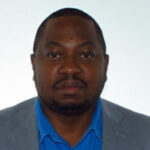 Mr Chris Clement Igiraneza is a social entrepreneur, humanitarian and experienced system Engineer skilled in management, Leadership and Strategic Planning.
Mr Chris Clement Igiraneza is a social entrepreneur, humanitarian and experienced system Engineer skilled in management, Leadership and Strategic Planning.
He is currently the founder and Chairman of Knowledge and Impact Trade Hub (KIT Hub), a non-profit organization based in Burundi for Innovation, reinventing local workforce through sustainable education, job creation, inclusive digital transformation and entrepreneurship. He is the Ambassador and country director for Women in Tech Global Movement, a world’s leading organization that fosters Inclusion, Diversity, and Equity in STEAM.
He has initiated and monitored projects for reinventing local workforce, promoting renewable energy and creating jobs in Burundi. As social entrepreneur he co-founded Energy Trade Impact Ltd, a start-up based in Burundi for renewable energy education, service and project management; and initiated Femme Solar Burundi to promote women empowerment in renewable energy sector. As an humanitarian he impacts and changes lives with his diverse initiatives such as Humanitarian Direct Impact (HuDI), Children’s Direct Aid (ChiDA), Women in Process Program (WIP) to supports street kids, women and children living in difficulties in Burundi.
Chris Clement Igiraneza has a Bachelor of Engineering –BE, Electrical Engineering from KTH Royal Institute of Technology Sweden and master degree in energy engineering from University of Gävle, Sweden.
Young Humanitarian Professionals Panel
1030-1230 Friday, 13-Oct-23
Panelists: Kory Hansen, Wayne Lifshitz, Ben Savonen
 Kory Hansen is Contracts, Compliance and Awards Manager with Counterpart International in Washington, DC. Kory is an international development professional with over 9 years experience in working on global development projects on five continents. The majority of his experience has been working on United States Government (USAID, State Department, Department of Agriculture) funded projects however, he also has experience building and maintaining relationships with a variety of international development donors such as The Government of the United Kingdom, Global Fund, private foundations, and United Nation Agencies.
Kory Hansen is Contracts, Compliance and Awards Manager with Counterpart International in Washington, DC. Kory is an international development professional with over 9 years experience in working on global development projects on five continents. The majority of his experience has been working on United States Government (USAID, State Department, Department of Agriculture) funded projects however, he also has experience building and maintaining relationships with a variety of international development donors such as The Government of the United Kingdom, Global Fund, private foundations, and United Nation Agencies.
Wayne Lifshitz, Chemonics Inc
 Wayne Lifshitz is an entrepreneurial senior leader, systems-thinker, business strategist, and strategic connector with more than 20 years of cross-cutting experience in Big 5 consulting, start-up, nonprofit, federal, and social enterprise sectors. He is currently a Senior Director at Chemonics Inc, for the Asia portfolio of the USAID Global Health Supply Chain Program-Procurement and Supply Management (GHSC-PSM) Project and previously served as the GHSC-PSM Nepal country director. Wayne also serves as an innovation and investment advisor to the executive office and lead entrepreneur trainer for the UNLEASH Global Innovation Lab, as well as Mass Challenge, ASME, Piranha Tank, SENSE and the Founders Institute. With a breadth of regional and technical experience, he’s led complex multi-year USAID and other international donor projects in global health, food security, supply chain, private sector engagement, gender and youth inclusion, environmental awareness, and social impact innovation and business growth in Africa, Asia and Latin America.
Wayne Lifshitz is an entrepreneurial senior leader, systems-thinker, business strategist, and strategic connector with more than 20 years of cross-cutting experience in Big 5 consulting, start-up, nonprofit, federal, and social enterprise sectors. He is currently a Senior Director at Chemonics Inc, for the Asia portfolio of the USAID Global Health Supply Chain Program-Procurement and Supply Management (GHSC-PSM) Project and previously served as the GHSC-PSM Nepal country director. Wayne also serves as an innovation and investment advisor to the executive office and lead entrepreneur trainer for the UNLEASH Global Innovation Lab, as well as Mass Challenge, ASME, Piranha Tank, SENSE and the Founders Institute. With a breadth of regional and technical experience, he’s led complex multi-year USAID and other international donor projects in global health, food security, supply chain, private sector engagement, gender and youth inclusion, environmental awareness, and social impact innovation and business growth in Africa, Asia and Latin America.
Prior to Chemonics, he supported AI data innovation at a large pharmaceutical company, was a strategy consultant, led the transformation of a public health marketing company, a yacht captain, an international competitor, and patented and sold several consumer products. He’s a founder and early investor in agtech, consumertech, and cleantech companies and sits on two non-profit boards. He’s also had a few failed start-ups. In addition to a PMP, he is a certified partnership broker and has led numerous public-private partnership efforts. Wayne is an economics graduate of U.C. Berkeley, has earned an MPH from Boston University and studied executive leadership and management at Arizona State University, Cornell and Columbia Universities.
Ben Savonen, Global Development Incubator
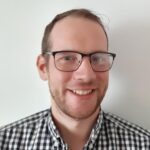 Ben Savonen has over 12 years of experience working in global development, technology, and entrepreneurship. Starting his career as a Peace Corps volunteer in Tanzania, Ben has since had the opportunity to collaborate with dozens of NGOs and social enterprises in both the US and East Africa. He has worked as a strategy and technology adviser to the World Bank, UNDP, FEMA, Field Ready, Villgro Africa and Penn State’s HESE program, and he is currently a Senior Associate on the strategy team at the Global Development Incubator. He is most notably the cofounder of the Kenya-based start up Kijenzi, which develops local manufacturing solutions to critical supply gaps experienced in lower- and middle-income communities.
Ben Savonen has over 12 years of experience working in global development, technology, and entrepreneurship. Starting his career as a Peace Corps volunteer in Tanzania, Ben has since had the opportunity to collaborate with dozens of NGOs and social enterprises in both the US and East Africa. He has worked as a strategy and technology adviser to the World Bank, UNDP, FEMA, Field Ready, Villgro Africa and Penn State’s HESE program, and he is currently a Senior Associate on the strategy team at the Global Development Incubator. He is most notably the cofounder of the Kenya-based start up Kijenzi, which develops local manufacturing solutions to critical supply gaps experienced in lower- and middle-income communities.
An engineer by training and an entrepreneur by experience, Ben is passionate about finding innovative solutions to real human needs. He holds degrees in mechanical and environmental engineering from Ohio State (BS), Michigan Tech (MS), and Penn State (Ph.D.).




